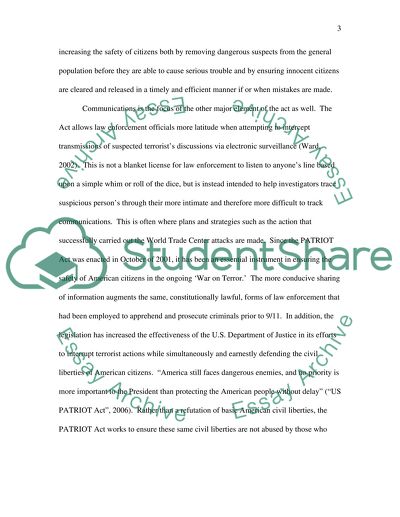Cite this document
(The United States Patriot Act Case Study Example | Topics and Well Written Essays - 1750 words, n.d.)
The United States Patriot Act Case Study Example | Topics and Well Written Essays - 1750 words. https://studentshare.org/law/1544953-the-united-states-patriot-act
The United States Patriot Act Case Study Example | Topics and Well Written Essays - 1750 words. https://studentshare.org/law/1544953-the-united-states-patriot-act
(The United States Patriot Act Case Study Example | Topics and Well Written Essays - 1750 Words)
The United States Patriot Act Case Study Example | Topics and Well Written Essays - 1750 Words. https://studentshare.org/law/1544953-the-united-states-patriot-act.
The United States Patriot Act Case Study Example | Topics and Well Written Essays - 1750 Words. https://studentshare.org/law/1544953-the-united-states-patriot-act.
“The United States Patriot Act Case Study Example | Topics and Well Written Essays - 1750 Words”. https://studentshare.org/law/1544953-the-united-states-patriot-act.


